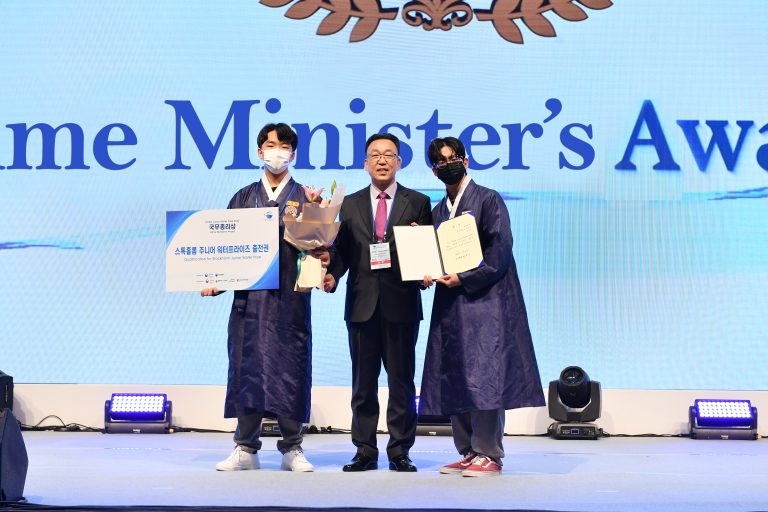heading

I’m Jungwoo Brian Kim, currently a junior student attending Korean Minjok Leadership Academy, an independent boarding school which is a member of G20 school group. I am a big fan of nature and passionate explorer on the field of biochemistry. I search for solutions for sustainable future of our global society. I’m also a fencer. I played fencing over more than 5 years and currently in school fencing team as a founder. I played gayageum, a Korean traditional instrument with 12 strings, for more than 10 years. I’m passionate on making my own songs by composing and recording my voice. I worked for Student Council since 9th grade and currently serve as a vice president.
Tell us what the water concern in your country is!Korea is designated as having Water Stress due to a lack of usable water per capita due to a large population density in a small land area. Measures are being urged to solve the shortage of agricultural water and the depletion of groundwater.
This is what I think is one of the solutions for a sustainable future:Based on the concept of water resilience, I try not to just suggest solutions for agricultural water shortage, but to create a system of sustainable agricultural water supply. Converting contaminated groundwater to be usable would be the greatest option so that available agricultural water can be secured.

Groundwater resilience: A sustainable approach to utilize nitrate contaminated water for agricultural use
The research mainly studies the impact of nitrate-contaminated groundwater on B. subtilis growth and its influence on plant growth. Ion chromatography analysis of nitrate-contaminated groundwater samples reveals varying media compositions that sustain B. subtilis growth. Nitrate uptake efficiency is evaluated through ion chromatography, indicating a reduction in nitrate content as microbial growth progresses. Furthermore, the application of biologically treated groundwater by B. subtilis promotes plant growth, exemplified by kidney beans. The study’s significance lies in securing water resources and ensuring sustainable food production. Future research will examine the long-term effects of microorganisms on groundwater, encompassing crop productivity, water conservation, and ecosystem considerations.

